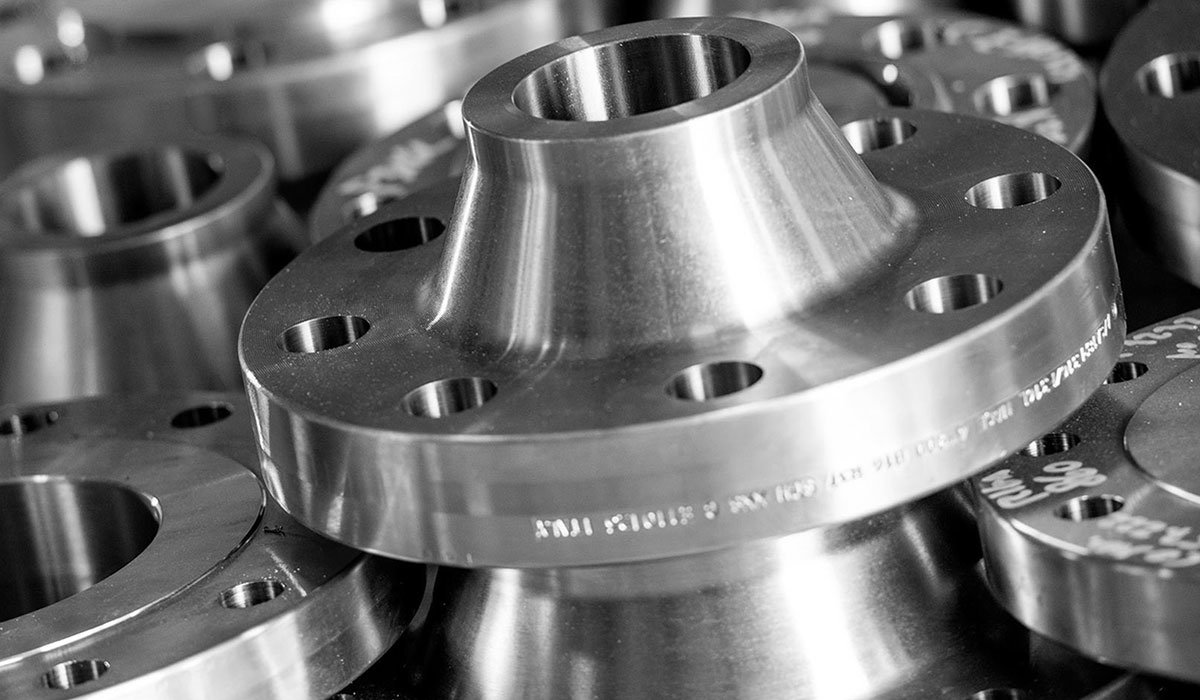Titanium Flanges: Properties, Types, and Industrial Applications
In industries where durability, corrosion resistance, and high strength are essential, Titanium Flanges are the preferred choice. These components are widely used in piping systems to connect pipes, valves, and other equipment while maintaining structural integrity and leak-proof performance. Known for their outstanding mechanical properties and resistance to extreme environments, titanium flanges offer a reliable solution across critical sectors such as chemical processing, aerospace, marine, and oil and gas industries.
What Are Titanium Flanges?
Titanium flanges are forged or machined components made from titanium or its alloys, used to connect piping systems securely. These flanges are available in various grades, with Titanium Grade 2 and Grade 5 (Ti-6Al-4V) being the most common. They offer exceptional corrosion resistance, especially against seawater, chlorides, and most acidic environments, making them suitable for both onshore and offshore applications.
Key Properties of Titanium Flanges
Titanium flanges possess a unique combination of physical and mechanical properties, setting them apart from traditional materials like stainless steel or carbon steel.
Excellent Corrosion Resistance
Titanium’s natural oxide layer forms a protective barrier, making it highly resistant to corrosion in seawater, chlorine-based chemicals, and oxidizing environments. This property makes titanium flanges ideal for marine, desalination, and chemical plants.
High Strength-to-Weight Ratio
Despite being about 40% lighter than steel, titanium offers comparable or higher strength. This helps reduce the overall weight of the system without compromising on performance.
Exceptional Temperature Resistance
Titanium flanges maintain their structural integrity over a wide temperature range, from cryogenic temperatures to over 400°C, making them suitable for heat exchangers, pressure vessels, and high-temperature piping systems.
Biocompatibility
Titanium is non-toxic and biocompatible, making titanium flanges suitable for pharmaceutical and food processing industries where hygiene and safety are critical.
Common Types of Titanium Flanges
Titanium flanges are manufactured in various designs to suit different connection and sealing requirements in piping systems.
Weld Neck Flanges
These flanges are designed for high-pressure systems and offer excellent stress distribution due to their long tapered hub. Weld neck titanium flanges are ideal for critical applications involving high pressure or cyclic loading.
Slip-On Flanges
Slip-on titanium flanges are easy to install and align, making them suitable for low-pressure applications. They are typically used where welding strength is not a primary concern.
Blind Flanges
Blind titanium flanges are used to seal the ends of piping systems. They are essential in pressure testing and maintenance procedures.
Threaded Flanges
Threaded titanium flanges are used in applications where welding is not feasible. These flanges are suitable for small-diameter, low-pressure piping systems.
Socket Weld Flanges
Socket weld titanium flanges are ideal for small-bore, high-pressure systems. They provide good fatigue resistance due to their smooth bore and welding socket.
Lap Joint Flanges
Used with stub ends, lap joint titanium flanges are useful in systems requiring frequent disassembly or maintenance.
Industrial Applications of Titanium Flanges
Thanks to their high performance and resistance to aggressive media, titanium flanges are used in a wide range of demanding industries.
Chemical and Petrochemical Industries
Titanium flanges are commonly used in acid production, chloride handling, and other chemical processes due to their excellent resistance to aggressive chemicals.
Marine and Offshore
In offshore platforms, shipbuilding, and desalination plants, titanium flanges are preferred for their corrosion resistance to seawater and marine environments.
Aerospace and Defense
Titanium’s strength and lightweight properties make it ideal for high-performance applications in aerospace systems, including fuel lines, hydraulic systems, and structural components.
Oil and Gas
Titanium flanges are used in sour gas environments and deep-sea drilling operations where high pressure and corrosion are major challenges.
Power Generation
Titanium is utilized in nuclear and thermal power plants where materials are exposed to high temperatures and corrosive coolants.
Medical and Pharmaceutical
Due to their biocompatibility and non-reactive nature, titanium flanges are used in cleanroom piping, sterile environments, and equipment used in drug manufacturing.
Benefits of Using Titanium Flanges
-
Reduced system weight without compromising strength
-
Long service life with minimal maintenance
-
Outstanding resistance to corrosion and erosion
-
Reliable performance in both low and high-temperature conditions
-
Compatibility with a wide range of chemicals and acids
-
Excellent weldability and machinability
Standards and Grades for Titanium Flanges
Titanium flanges are manufactured in compliance with international standards such as:
-
ASTM B381 (for forged titanium flanges)
-
ASME B16.5 (flange dimensions and tolerances)
-
ANSI and DIN standards for pressure ratings and dimensions
Common titanium grades used:
-
Grade 2 (UNS R50400): Commercially pure titanium with excellent corrosion resistance
-
Grade 5 (UNS R56400 or Ti-6Al-4V): Alloyed titanium with enhanced strength
Conclusion
Titanium flanges offer unmatched advantages in industries that demand lightweight strength, long-term reliability, and superior corrosion resistance. Their versatility and robust properties make them an ideal choice for connecting critical piping systems in the harshest conditions. As industrial standards evolve and performance expectations rise, titanium flanges are expected to play a bigger role in high-performance engineering solutions.


